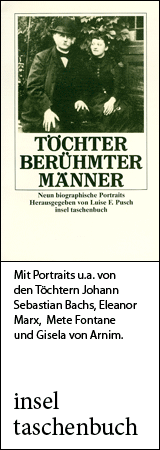
(Wilella Sibert Cather)
born on December 7, 1873 in Back Creek Valley near Winchester, Virginia, USA
died on April 24, 1947 in New York City, USA
US-American writer
150th birthday on December 7, 2023
Biography
Willa Cather led an unusually independent life for her time – though the women she portrayed in her novels provide the reader with little indication of this. Steadfast in her commitment to writing, she was held in the highest esteem, enjoyed financial success, and received a remarkable number of public honors and awards over the course of her career.
The oldest of seven children, Willa spent her early childhood in a sheltered environment on a Virginian farm. At the age of ten, she was abruptly transplanted to the “frontier” in Nebraska: her parents had moved there to struggle, as had immigrants from all over the world, to turn the prairie into farmland.
After college, Cather moved to Pittsburgh, where she worked for ten years as an arts and culture critic for newspapers and as a teacher of English and Latin. She met Isabelle McClung, the daughter of wealthy parents and “the great love of her life.” In 1901, Willa moved in with Isabelle at the McClungs' Pittsburgh home. Although the parents were initially unenthusiastic, they came to accept the unusual arrangement when their daughter threatened to break off relations with them.
In 1906, Cather went to New York to work at McClure's news magazine, where she became editor-in-chief in 1908. She moved into an apartment in the same building as Edith Lewis, a fellow editor at McClure’s, and the two remained together for the rest of Cather's life.
In 1911 she took a leave of absence from the paper to finish the manuscript of her first novel, Alexander's Bridge (1912). A year later O Pioneers!, a novel about the frontier, was published which, together with her second frontier novel, My Antonia (1918), established her fame.
Sinclair Lewis was awarded the Nobel Prize for Literature in 1930, but he maintained that the prize should have gone to Cather. She had produced a body of work in the previous 18 years – ten novels, essays, major short stories, and literary criticism – that many felt was unparalleled.
In 1935 she developed persistent pains in her wrist – she wrote everything by hand. This protracted tendonitis severely impaired her writing. She could dictate her letters, but that was not possible with her literary works; she needed to write by hand in order to see the story take shape on paper. In the twelve years that remained before she died of a cerebral hemorrhage in 1947, she published only one novel and several shorter prose texts.
As she summed things up late in her life, “escape” was the central motif of both her life and her art. She commented drily that she was definitely not someone who sacrificed for the sake of art, as she generally traded any unpleasant activity for something more pleasant. She admitted to spending as much time listening to music as other people spend working.
(Text from 1996; translated with DeepL.com; edited by Ramona Fararo, 2023.)
Please consult the German version for additional information (pictures, sources, videos, bibliography).
Author: Luise F. Pusch
Quotes
I like trees because they seem more resigned to the way they have to live than other things do.
Some memories are realities, and are better than anything that can ever happen to one again.
The history of every country begins in the heart of a man or a woman.
Source: gustavus.edu/academics/departments/english/cather/quotations.html
If you hold the rights to one or more of the images on this page and object to its/their appearance here, please contact Fembio.



